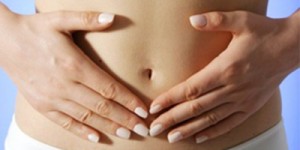As you may know last month (May) was Celiac Awareness Month. To help promote this event we published a FAQ based upon an interview with Dr Chris Steele. Steele is both a doctor and a person who lives with Celiac disease.
As part of our preparations for this interview we asked a patient who has been diagnosed with gluten
intolerance and probable Celiac what were the first questions he wanted to know the answers to as soon as he was diagnosed. And we are now delighted to share the results of this interview with you today!It might be worth mentioning that in Dr Steele’s native UK the condition is spelt Coeliac rather than Celiac. This might explain some of the idiosyncratic spelling in this follow up.
Also you might find this introduction to Celiac disease of use and interest.
Patient Talk: If we can just talk a bit about how this might affect any who has coeliac disease or gluten intolerance, what would happen if someone inadvertently ate food containing gluten, how careful do they have to be?
Dr. Chris: Some people have to be very careful. Like most disease there is a spectrum, it can be mild it can be moderate it can be severe. And some patients with very sensitive intestines who react to tiny amounts of gluten, a classic example is a coeliac patient has to have their own toaster. Because if they put their gluten free bread in to the family toaster, which is ordinary bread, even crumbs from ordinary bread can set off their symptoms of diarrhoea, the abdominal pain and bloating. There are some patients which are less severe and they tolerate little gluten and you soon find out where you stand on the spectrum.
Patient Talk: there’s a question here: Is it safe to buy food which is not labelled as gluten free of is there is no gluten items in the ingredients?
Dr. Chris: I think what you have to think about is where gluten can be? It’s in the bread, pasta, pastries, cakes. But it’s also hidden in foods like sausages, fish fingers, soups sauces, soy sauce, and beer. Right?
Patient Talk: Right.
Dr. Chris: You’ve got to be aware. I think a good thing is if you go to Coeliac UK they give you some very good directory of all the foods and drinks out there and the levels of gluten in them.
Patient Talk: Does that cover gluten free friendly restaurants?
Dr. Chris: Now this is a problem when you go out to eat. A restaurant might advertise this gluten free food. Yeah they are probably serving normal good and gluten free food as your gluten free food has been on the surface on kitchen where there was normal food before and therefore there can be contaminated. There are some restaurants which are totally gluten free and more and more of them are popping up and you can go in and feel quite reassured when you go in and normally the chief or the owner is a coeliac.
Patient Talk: This one is an interesting question as well, can somebody kiss their partner if they are a coeliac and their partner has eaten bread?
Dr. Chris: I think it’s very unlikely, unless they have a thick coating of bread crumbs on their lips.
Patient Talk: So is it safe to touch and handle bread?
Dr. Chris: Not normal bread, if you are touching or handling or even the slight taste of any food which contains gluten you could get a reaction where your symptoms flare up.
Patient Talk: Does the same apply for drinks ?
Dr. Chris: Yep, you just got to be very aware, you know? Of the drinks as you don’t think of them as containing gluten. Barley, wheat, rye, if it’s there it contains gluten.
If you are a Celiac what were you first concerns?
Why not share them and the solutions in the comments section below.
Thanks very much in advance.
